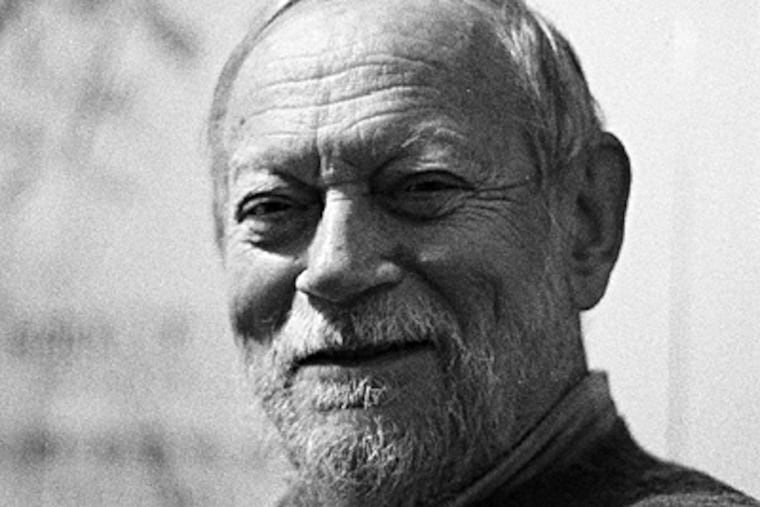Film scholar Amos Vogel dies
The cineast and scholar Amos Vogel, cofounder of the New York Film Festival and a professor of visual communications at the University of Pennsylvania, died Tuesday, April 24, of kidney failure at his Washington Square Park apartment in Manhattan. Mr. Vogel, who last week celebrated his 91st birthday, had been ill for some time, said his son, Steven. In a career spanning six decades, Mr. Vogel helped school a generation of leading filmmakers and critics in the possibilities of cinema as a true art form.

The cineast and scholar Amos Vogel, cofounder of the New York Film Festival and a professor of visual communications at the University of Pennsylvania, died Tuesday, April 24, of kidney failure at his Washington Square Park apartment in Manhattan. Mr. Vogel, who last week celebrated his 91st birthday, had been ill for some time, said his son, Steven.
In a career spanning six decades, Mr. Vogel helped school a generation of leading filmmakers and critics in the possibilities of cinema as a true art form.
"He was audacious, articulate, and a tastemaker," Philadelphia film critic Carrie Rickey said. "And he had just great, incredibly great, taste."
Born in 1921 Vienna to Jewish parents, Mr. Vogel arrived in America a penniless teen after escaping the Nazis. "I worked as a newspaper delivery boy, garage attendant, machine-tool worker, poultry-farm helper," Mr. Vogel wrote in 1993, "until — having learned enough English — I obtained a degree in economics and political science" at the New School of Social Research.
He transformed the New York film scene in 1947 when he founded the legendary film club Cinema 16 with help from his wife, Marcia, and their friend, the avant-garde director Maya Deren. By 1963, it had grown from 200 to 7,000 members. Cinema 16 exposed a new generation of film fans, critics, and aspiring filmmakers to a range of international fare, including the works of John Cassavetes, Stan Brakhage, Roman Polanski, Kenneth Anger, Alain Resnais, and Jacques Rivette.
Mr. Vogel continued the same work at the New York Film Festival, which he ran until 1968. "If you're looking for the origins of film culture in America, look no further than Amos Vogel," the director Martin Scorsese said in a statement to the Film Society of Lincoln Center, which produces the festival.
Philadelphia film writer Sam Adams said Mr. Vogel helped give birth to the concept of the art film.
"He didn't just screen films," Adams said. "He very deliberately created a film culture in New York — an educational and cultural environment. He was very conscious of his pedagogical role."
The filmmaker Paul Cronin, director of the documentary Film as a Subversive Art: Amos Vogel and Cinema 16, said Mr. Vogel knew that to be an effective teacher he would have to challenge audience expectations by showing films rejected as too provocative, pornographic, subversive, or just too strange.
"He asked the audience to think in new ways and feel in new ways," Cronin said, "and to expose themselves, open themselves up, and engage with radical new images, sounds, noises, voices."
Mr. Vogel, who had taught courses at Harvard and Columbia Universities and the New School, accepted a permanent position at Penn's Annenberg School for Communication in 1974. That same year, he published his second book, Film as a Subversive Art. (In 1963, he published a children's book, How Little Lori Visited Times Square, with illustrations by Maurice Sendak.)
Film as a Subversive Art short-circuits ways we usually classify movies, offering a seminal study of how film can challenge entrenched ideologies of all kinds. He argued that films should not be forbidden simply for showing uncomfortable truths, Rickey said. "Vogel showed that sex and adult experiences that were forbidden in American movies could be shown in healthy and intelligent ways," she said. Mr. Vogel retired from Penn in 1991.
Michael Chaiken, who programmed a tribute to Mr. Vogel as part of the 2003 Philadelphia Film Festival, said Mr. Vogel's greatest talent was to juxtapose radically different movies. "Amos would put a science film about ants next to an avant-garde short," said Chaiken, who was director for film at the International House in University City from 2000 to 2005. Chaiken said Mr. Vogel's subversive edge was not of any particular ideology; instead, he believed that film and great art existed to strip us of preconceptions and entrenched ideologies. "Subversion for him was the ultimate ideology," Chaiken said, "that we constantly need to be moving forward and striving for the new. And Amos believed the artist, more than the politician, was capable of revealing certain truths."
In addition to his son, Mr. Vogel, whose wife died in 2009, is survived by another son, Loring, and four grandchildren.Steven Vogel said the family planned a public memorial in the near future.
Contact Tirdad Derakhshani at 215-854-2736 or tirdad@phillynews.com.